
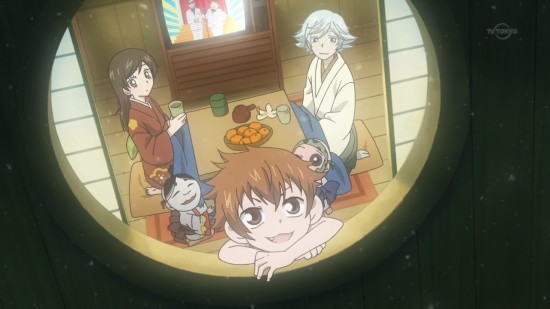
I was surprised that Kamisama Kiss 2 (Hulu) ended without resolving the story of Akura-Ou. In fact it left him pretty much where he started at the beginning of the season, though perhaps influenced just a little bit by Nanami. It’s almost as if they were counting on having another season to wrap it up. (For a mainstream shoujo anime without a daytime TV distribution deal that seems like a long shot.)

But the ending feels quite satisfactory in its own way. It takes us on a trip back through time to show us Nanami as a little girl, growing up with an irresponsible father and a dying mother who extracted a final promise from her to “never depend on a man.”
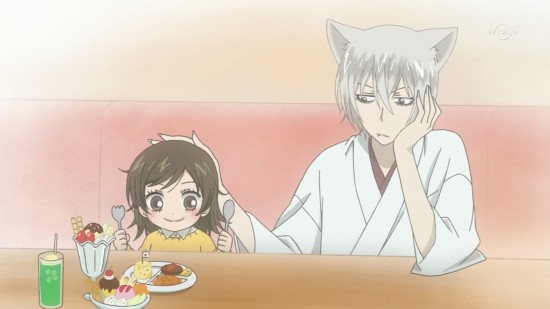
The emotional focus of the episode is actually on Tomoe. Seeing Nanami as a little girl helps him understand her better but it also reminds him how ephemeral human life is.
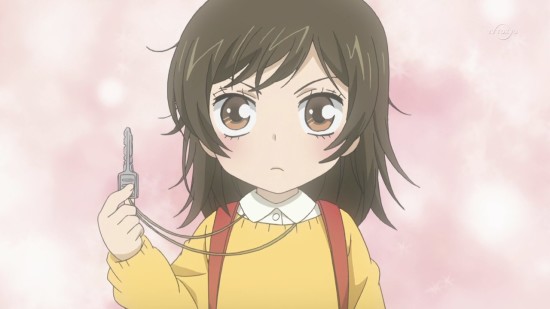
As a general principle I’m not in favor of romances between teenaged humans and centuries-old youkai…but this reminds us that the emotional risks for the youkai are pretty steep too. Tomoe apparently knows this from past experience which explains a lot of his dour attitude.
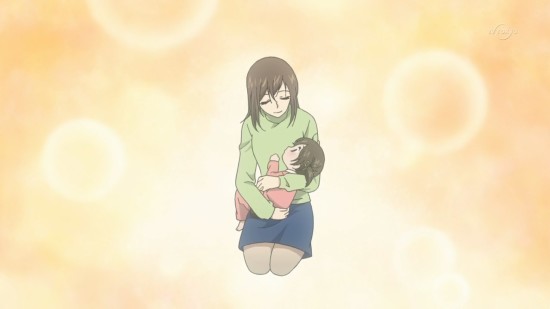
I’m fully aware that this is a pretty lightweight series. It’s not the kind of show where you wonder if any of the main characters are going to get killed. It’s more a matter of how they will get out of their current scrape. But I’ve enjoyed this show a lot, and I enjoyed the second season more than the first.
The difference is that Nanami has matured a lot by the second season. She no longer feels that she is pretending to be a god; she knows that she is one.
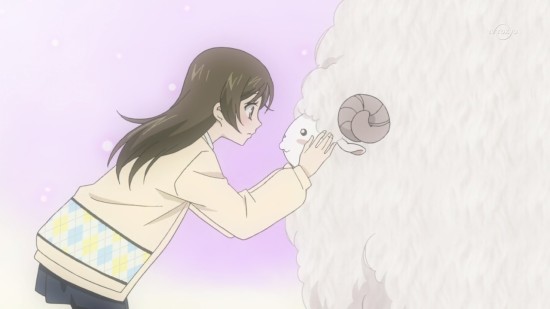
In the animist world-view of Shinto anyone and anything can be considered a kami but to be a kamisama worthy of being worshiped in a shrine you have to embody exceptional purity. Such a being can purify those of us who are less pure. Nanami has this characteristic and most of the beings she encounters seem to recognize it.
The amazing thing is that the show is able to pull this off without making her seem icky-sweet.
Earlier post: Kamisama Kiss 2–Anime Early Impressions.

